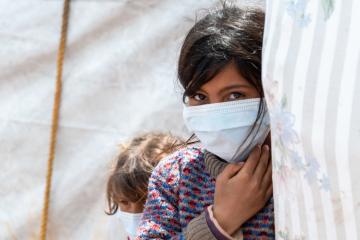There have been media reports that some non-governmental organisations (NGOs) in India have been prevented from distributing oxygen concentrators from foreign donors and suppling them to the government due to changes in legislation.
However, this legislation is not affecting DEC charities’ ability to support healthcare facilities in the country. DEC charities are working closely with health authorities to deliver on their requests – including regionally procured oxygen concentrators – coordinating with the Indian Health Ministry as well as hospitals, clinics and health facilities at state, regional and local level.
Media reports have highlighted the Foreign Contribution Regulation (Amendment) Act that was passed last year and put into practice in September.
Under the amended legislation, NGOs operating in India need a licence to operate, cannot distribute any foreign contributions to other groups (re-granting), and all funding from abroad must be placed in a specific bank account in the capital, Delhi.
DEC charities have been working in India for many years and have the required licence and bank account, meaning that this legislation is not having a major impact on their ability to deliver aid.
Madara Hettiarachchi, DEC Director of Programmes and Accountability said: “DEC charities are using donations to support health systems in India, including delivering oxygen concentrators and other life-saving equipment. For example, member charities have quickly set up treatment facilities in rural areas where there aren’t enough beds to cope with this devastating second wave.
“Due to their long-standing presence in India, DEC member charities are in a better position than some smaller NGOs to navigate legislation and work with health systems.”
More than £5 million has been raised since the DEC extended its Coronavirus Appeal to cover India two weeks ago, but more funds are needed to provide life-saving treatment and supplies and to protect vulnerable communities from the virus and its knock-on effects.






